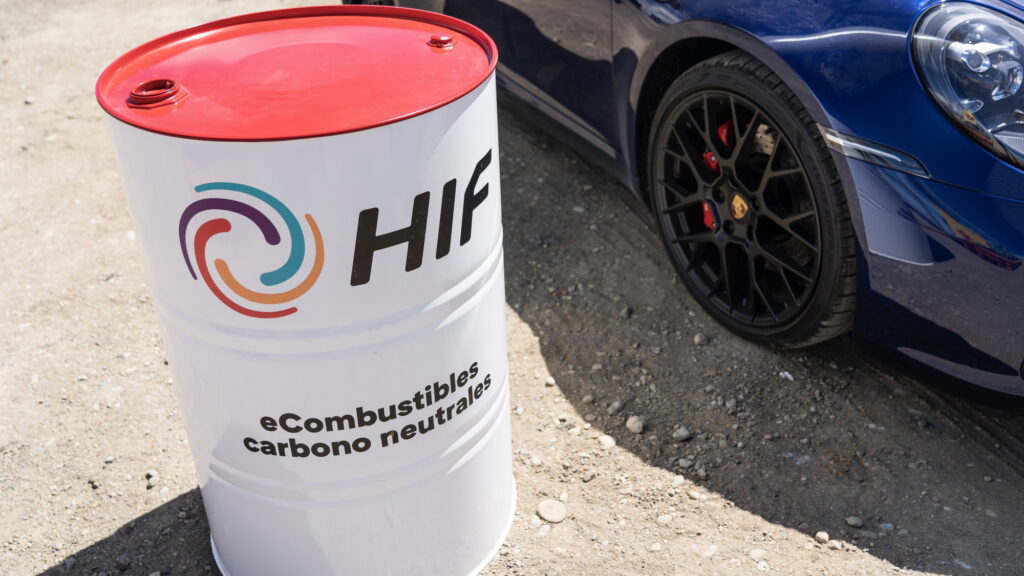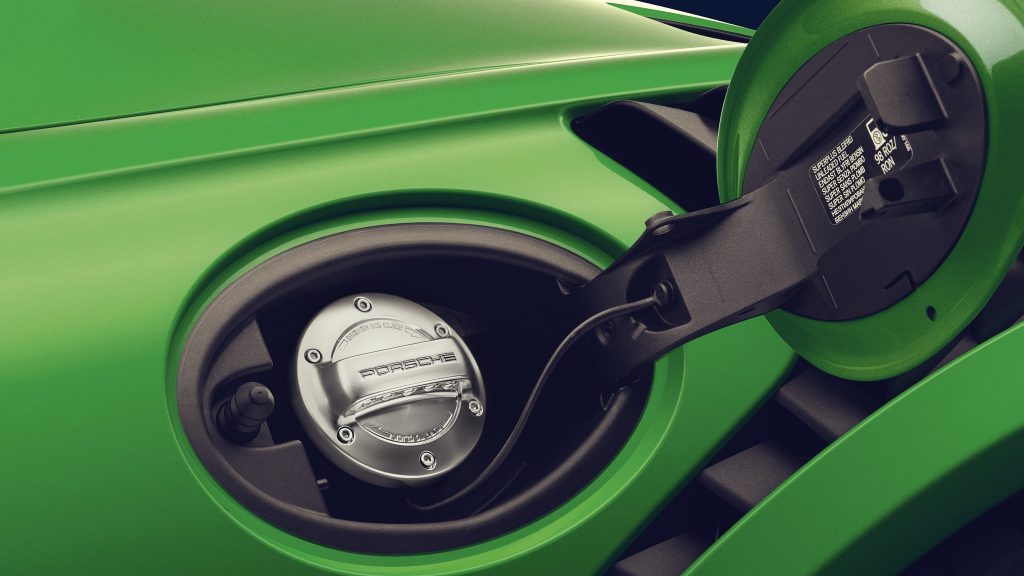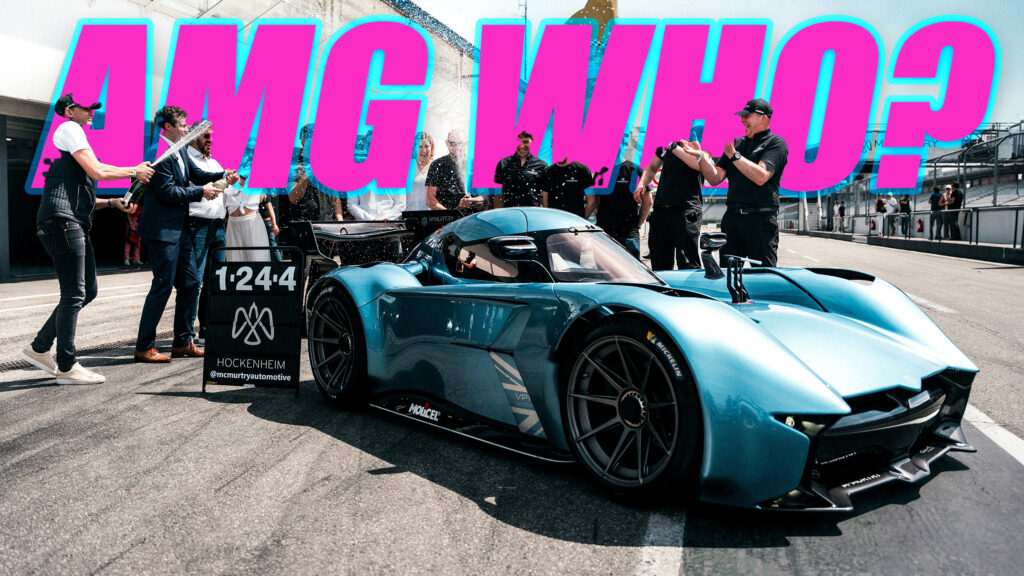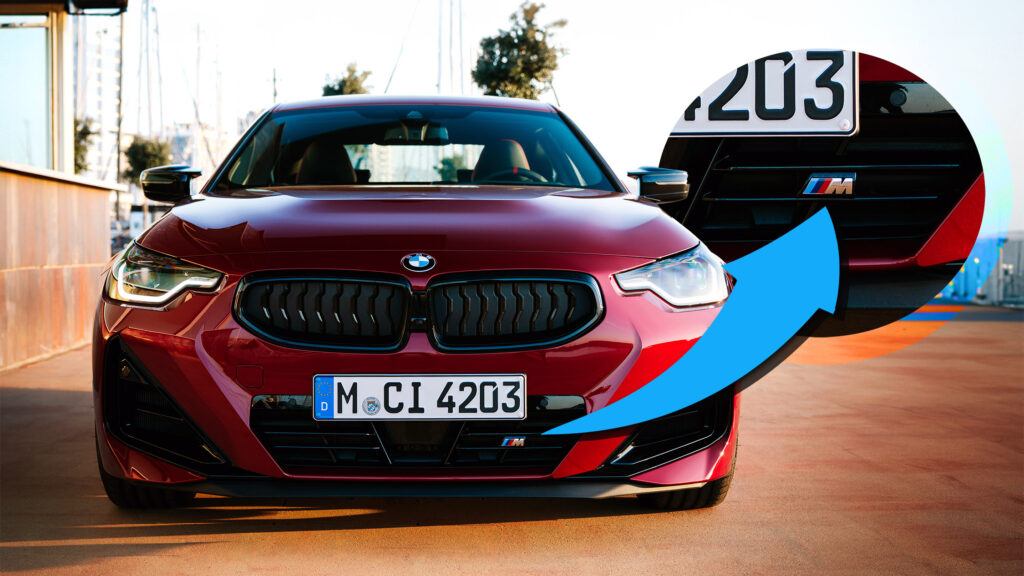The promise of synthetic fuels, or e-fuels, as many refer to them as, could spell savior for the beloved gasoline engine. Thanks to their carbon neutrality, these fuels run as net-cleanly as an EV while allowing us enthusiasts to reap all the benefits of the characterful combustion-engined vehicles we so greatly adore.
And as reported by Automotive News, automakers are beginning to see a benefit from e-fuels not just from an enthusiast perspective, but a practical one as well. One of the biggest factors holding back battery electric vehicles is their weight, which can be hundreds of pounds more than a comparable gas car. In applications such as sports cars, this weight comes as the exact opposite of the vehicle’s whole ethos, and the ability for an automaker to continue to run lighter ICE setups cleanly would prove to be a great advantage.
Read More: Texas Approves Construction Of World’s Largest E-Fuels Facility By Porsche-Backed HIF

Another issue with EVs that e-fuels look to solve is highly fluctuating range. Despite some companies’ best efforts to increase their vehicles’ range, that range is still quite variable based on conditions such as temperature and towing loads, much more so than in an ICE vehicle. These companies have begun to combat this with quicker charge times, but even the fastest-charging vehicles still take upwards of 20 minutes to go from 0 to 80 percent capacity. Compare that to an ICE vehicle running e-fuels, and that number drops to only about 2 minutes. This isn’t to say that EV technology isn’t making some seriously impressive strides, but there are inherent advantages to e-fuels that are hard to beat.
Adding to that, one of their biggest upsides is that they require little to no modifications to the car running them, meaning there’s no additional costs incurred aside from the fuel itself. “It can be a drop-in replacement that would require very few changes, maybe just a bit of a calibration change,” said Greg Davis, mechanical engineering professor at Kettering University, to Automotive News. “I don’t anticipate any changes to the emissions system or the catalytic converter.”
See Also: Toyota And Exxon Testing Synthetic Fuel That Cuts ICE Emissions By Up To 75%

However, despite e-fuels’ ease of use, producing them is not as simple. Since they are meant to be carbon neutral, the production process needs to remove as much carbon dioxide from the atmosphere as is produced by burning the fuels themselves. To make the fuel, CO2 is removed from the air, then combined with hydrogen obtained via hydrolysis. This process requires large amounts of water, and consequently, large amounts of electricity to separate it into its hydrogen and oxygen constituents. And because it all needs to be carbon neutral, that electricity needs to come from renewable sources such as solar power or wind turbines. For this reason, the cost of a gallon of e-fuel is multiple times as expensive as that of traditional gasoline.
The effort is truly a balancing act, but some automakers such as Porsche, feel it’s worth the investment to keep the combustion engine alive. Currently leading the charge on bringing synthetic fuels to the masses, the German manufacturer invested $75 million in an e-fuel production plant in Chile. Right now, the plant is estimated to produce 130,000 liters (34,342 gallons) of fuel per year, which is planned to increase to 55 million liters (14.5 million gallons) by 2025, then ten times that by 2027. With any luck, costs will come down by then as the technology develops, but even if the fuel remains a rarity reserved for the wealthy, it will at least keep some of the finest ICE cars running if the readily accessible gas station becomes a thing of the past.







